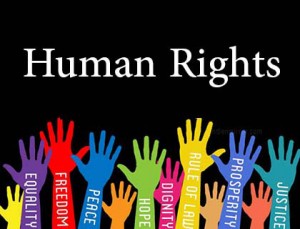Member States are meeting in Abidjan, 7-11 May 2018, to discuss the text of a draft protocol to the African Charter on Human and Peoples’ Rights on the Specific Aspects of the Right to a Nationality and the Eradication of Statelessness in Africa.
The draft protocol was adopted by the African Commission on Human and Peoples’ Rights in 2015, and formally submitted to the African Union in May 2017.
“We see the need for some basic standards on nationality every day in our work in Kenya”, said Diana Gichengo of the Kenya Human Rights Commission. “African States should take this chance to lead the world in resolving these issues”, she added.
The text would establish minimum conditions in which States would be required to recognise or grant nationality to individuals with strong connections to their territory. In doing so, it recognises the specific challenges caused by the colonial establishment of borders in Africa and transfer of labour before independence, post-colonial conflicts, as well as low levels of birth registration and the nomadic lifestyle of many of Africa’s peoples.
Gaye Sowe of the Institute for Human Rights and Development in Africa, Banjul, remarked that a considerable number of cases have been brought before the African human rights bodies concerning nationality.
The African Commission and African Court on Human and Peoples’ Rights, as well as the African Committee of Experts on the Rights and Welfare of the Child, have heard many cases in which the right to a nationality has been central to the complaint.
Most recently, in March 2018, the African Court delivered a judgment in the case of Anudo Ochieng Anudo, who spent several years living in no-man’s land between Kenya and Tanzania because Tanzania no longer recognised him as a national, and Kenya also denied he was theirs.
Janemary Ruhundwa of Asylum Access in Dar es Salaam, who brought the Anudo case before the Court, said: “As Anudo Ochieng has found, citizenship is the ‘right to have rights’. The African Court has emphasised how important due process is – now states should endorse that commitment through the protocol.”
Post published in: Featured


